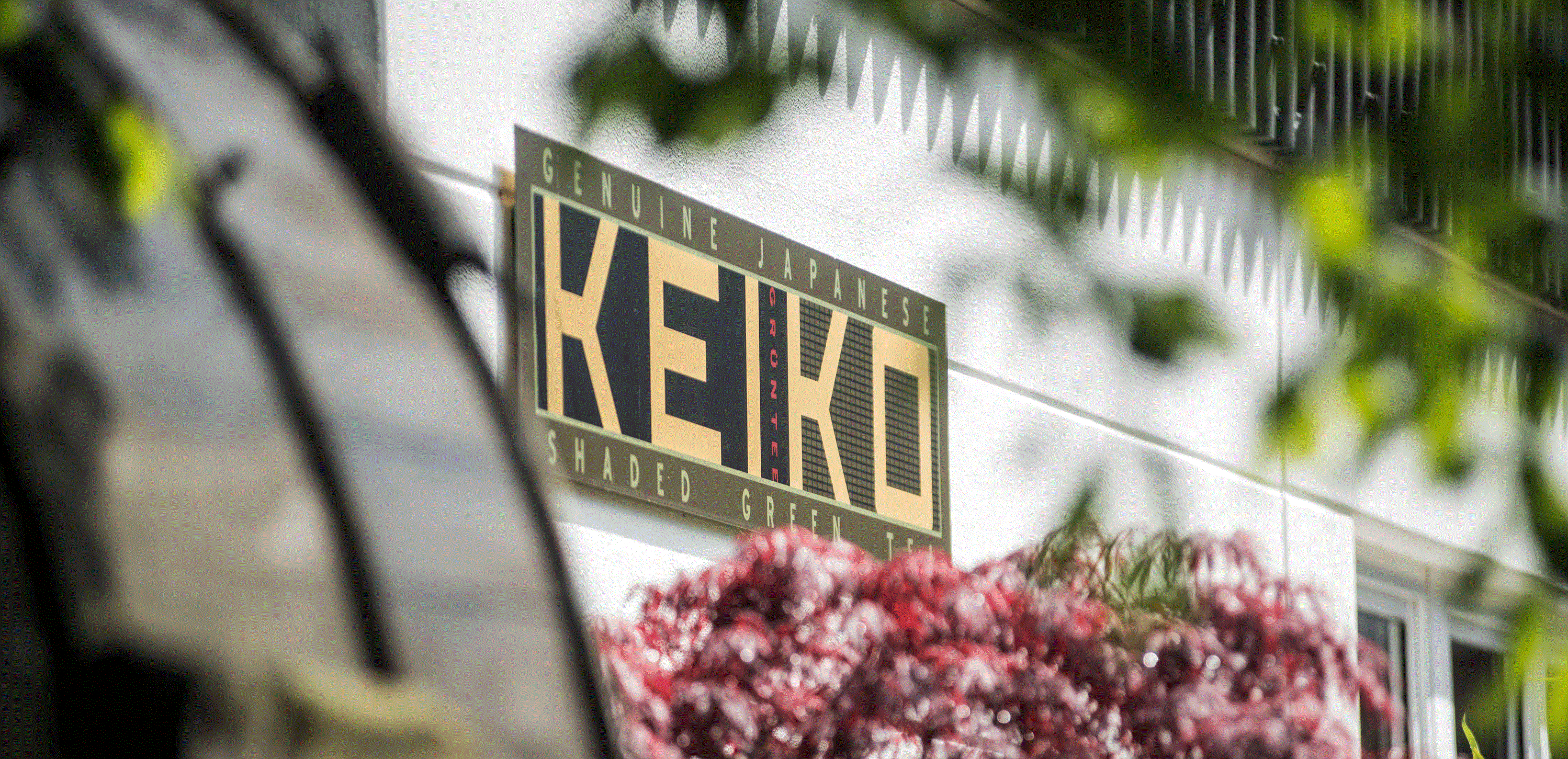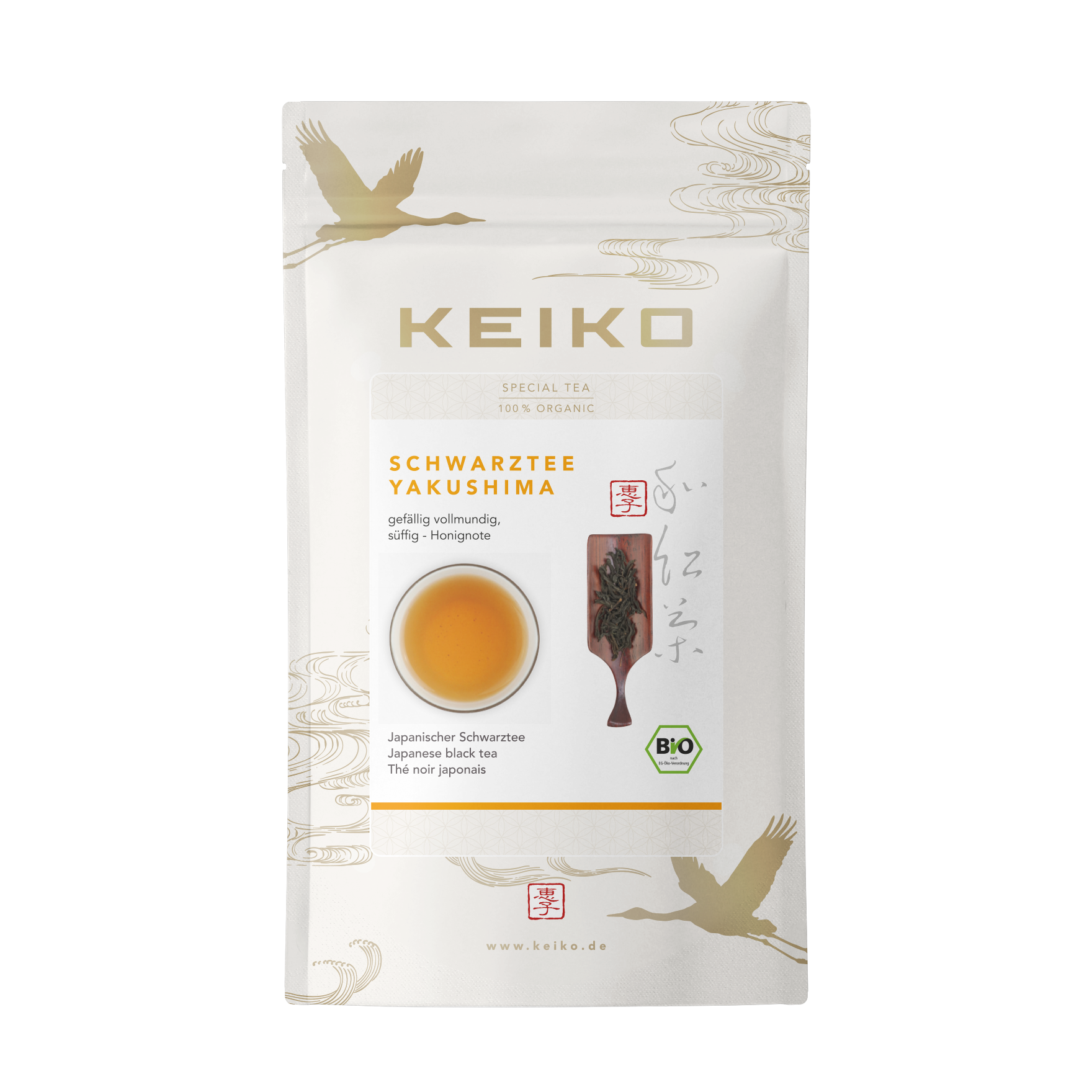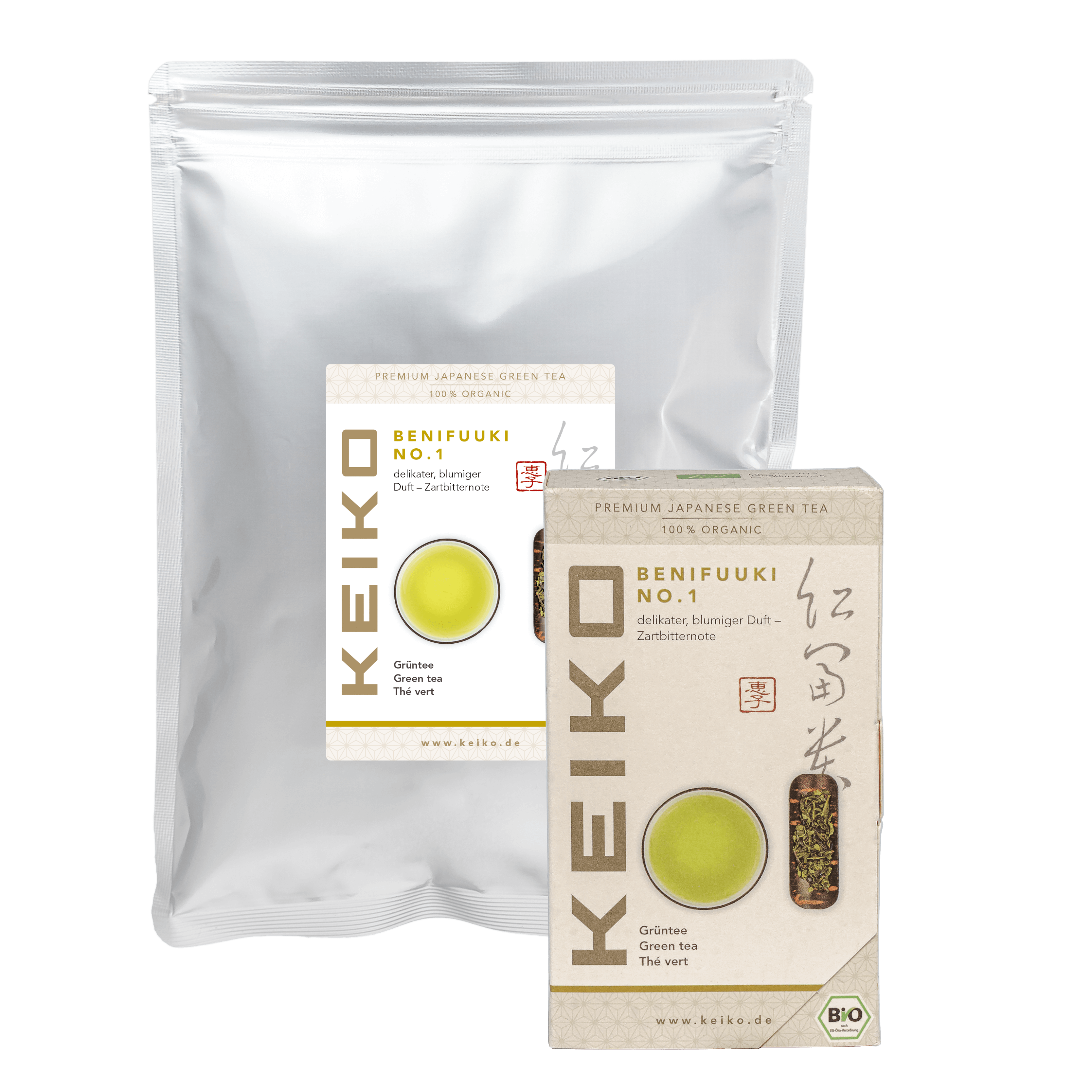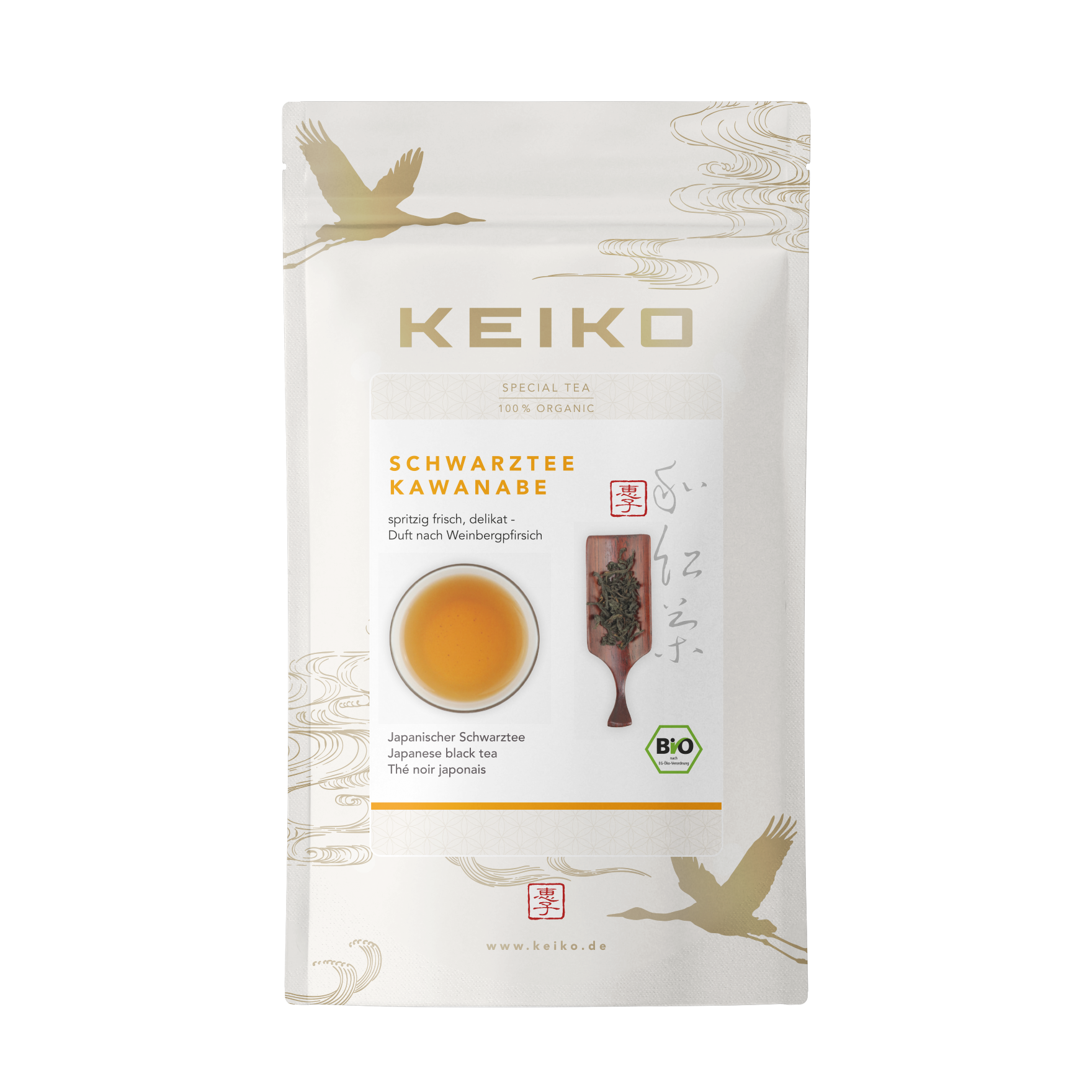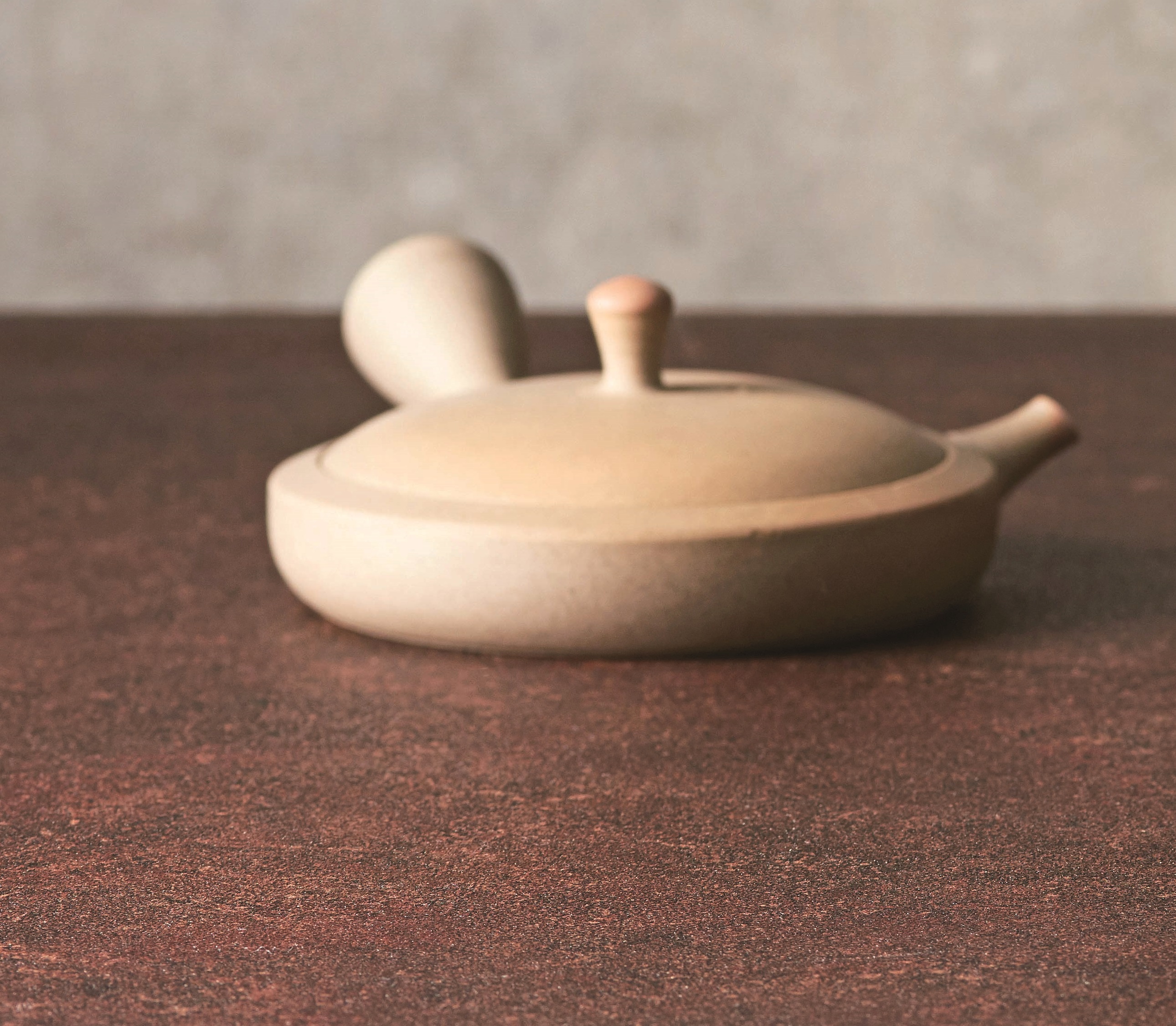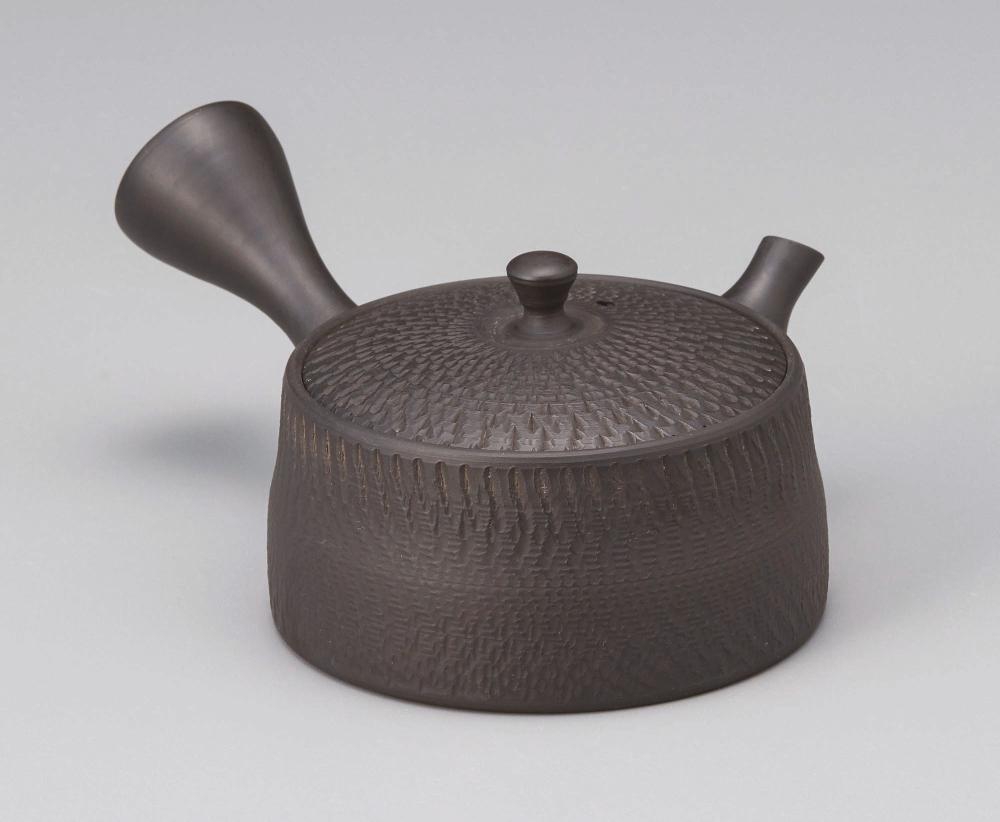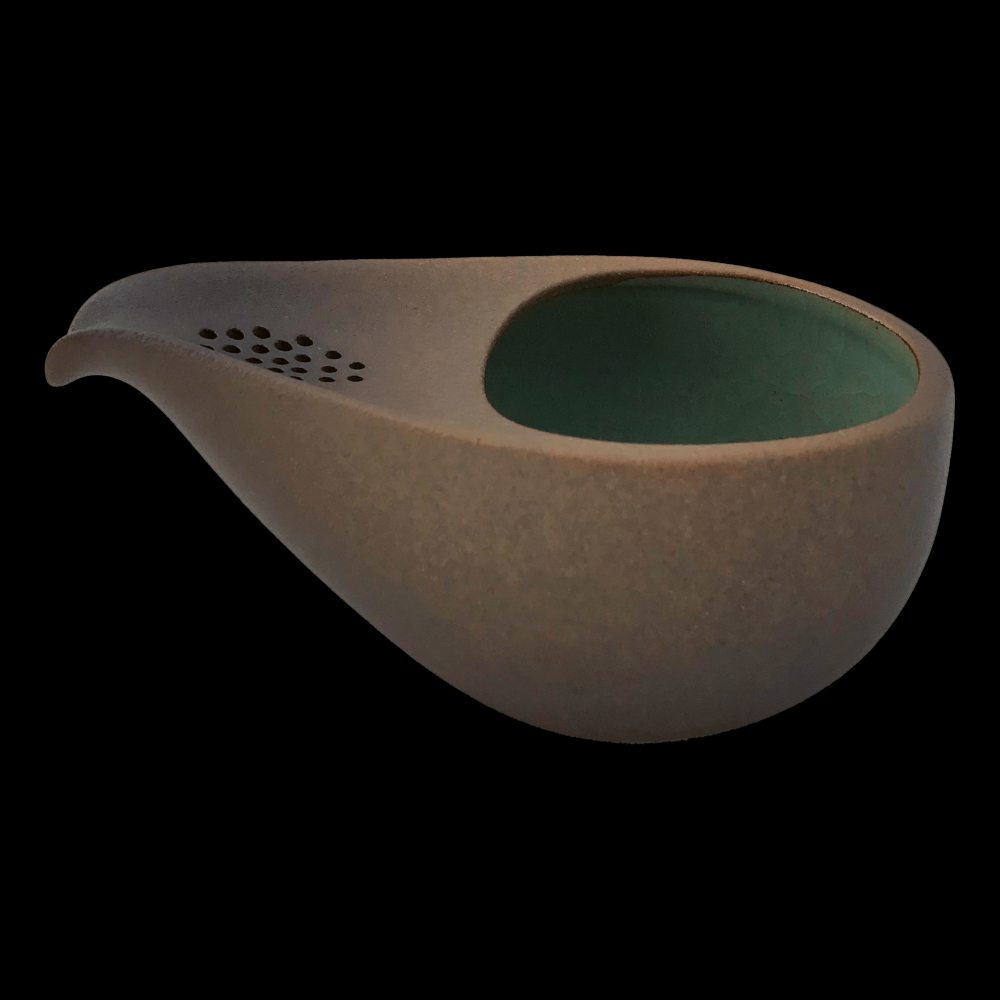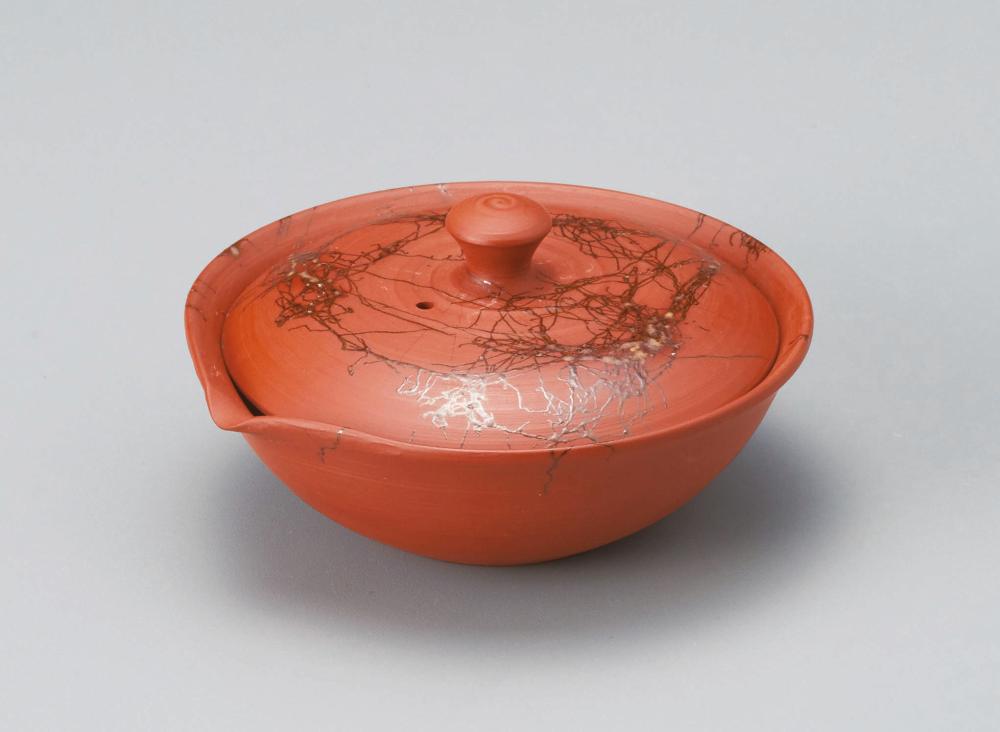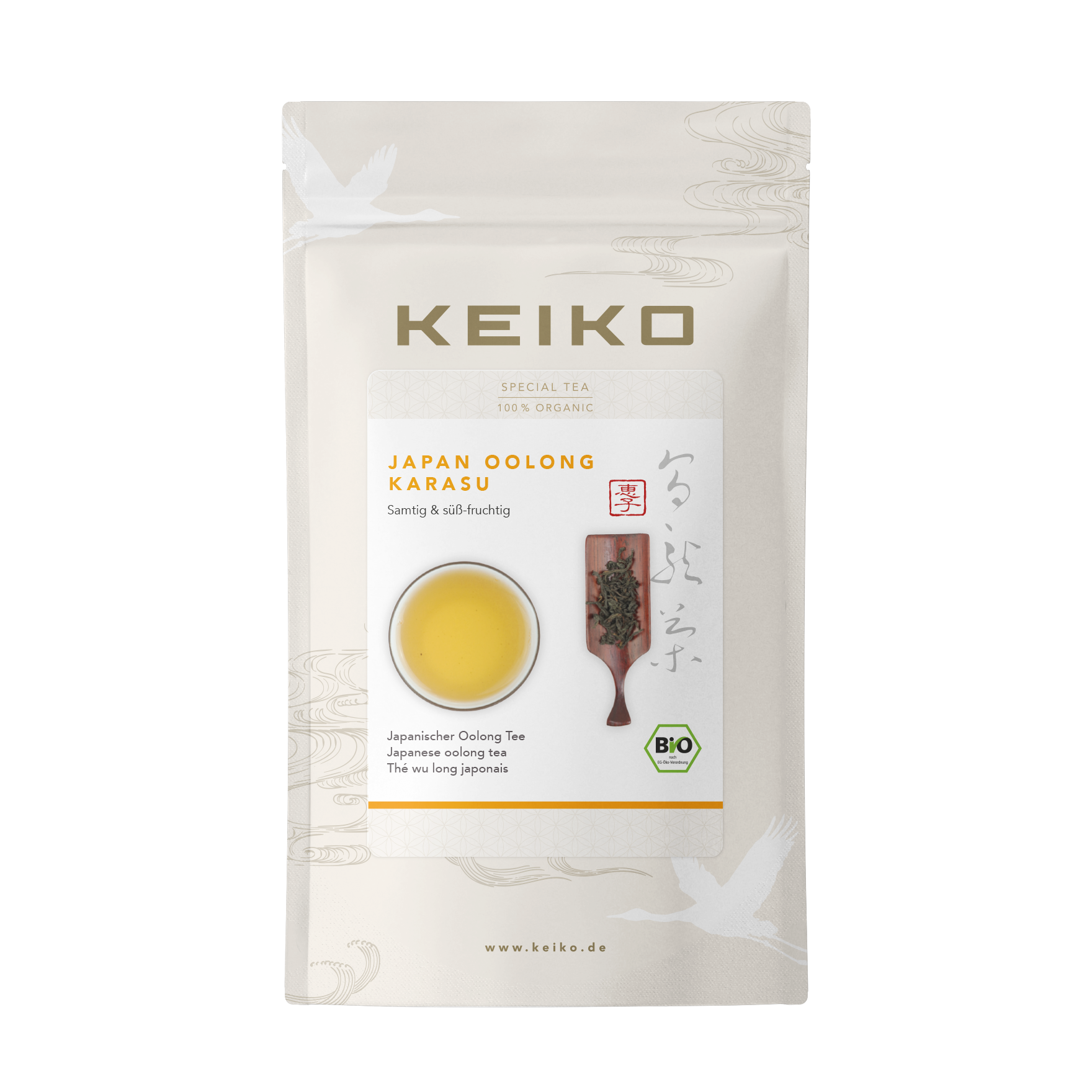
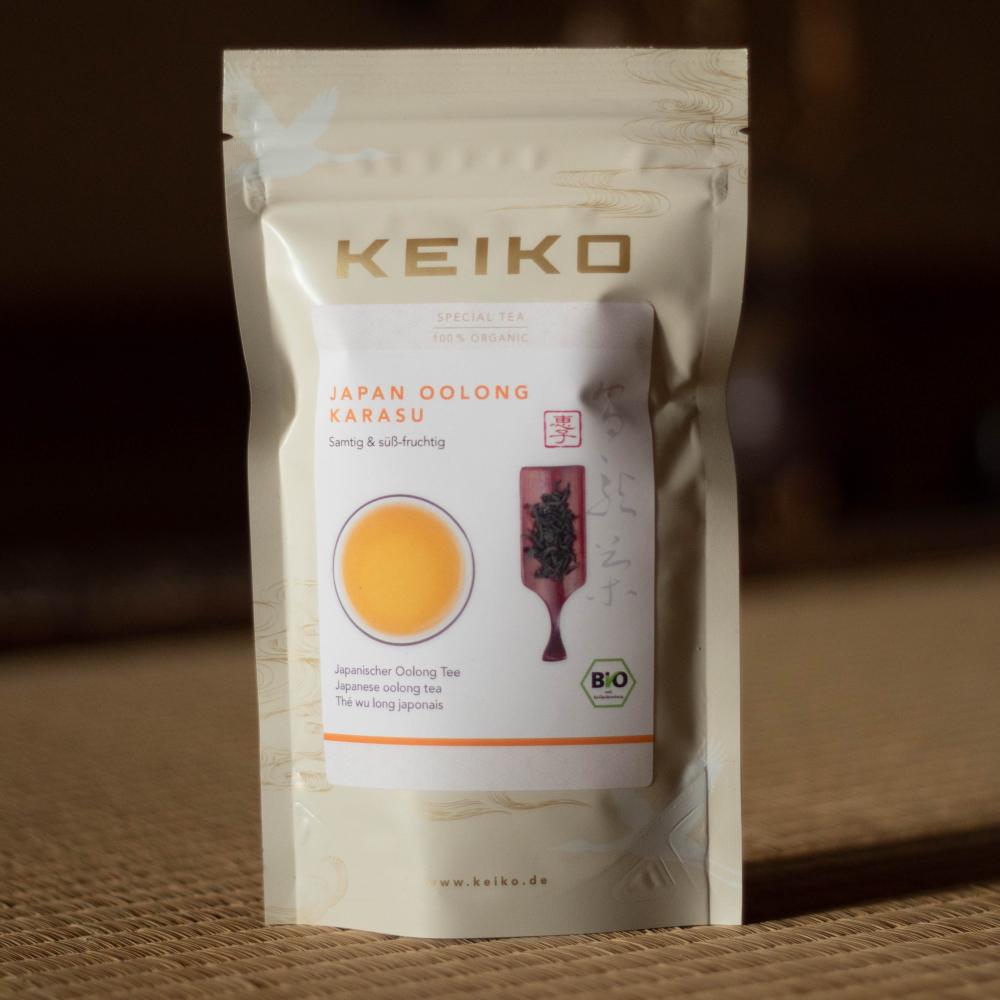
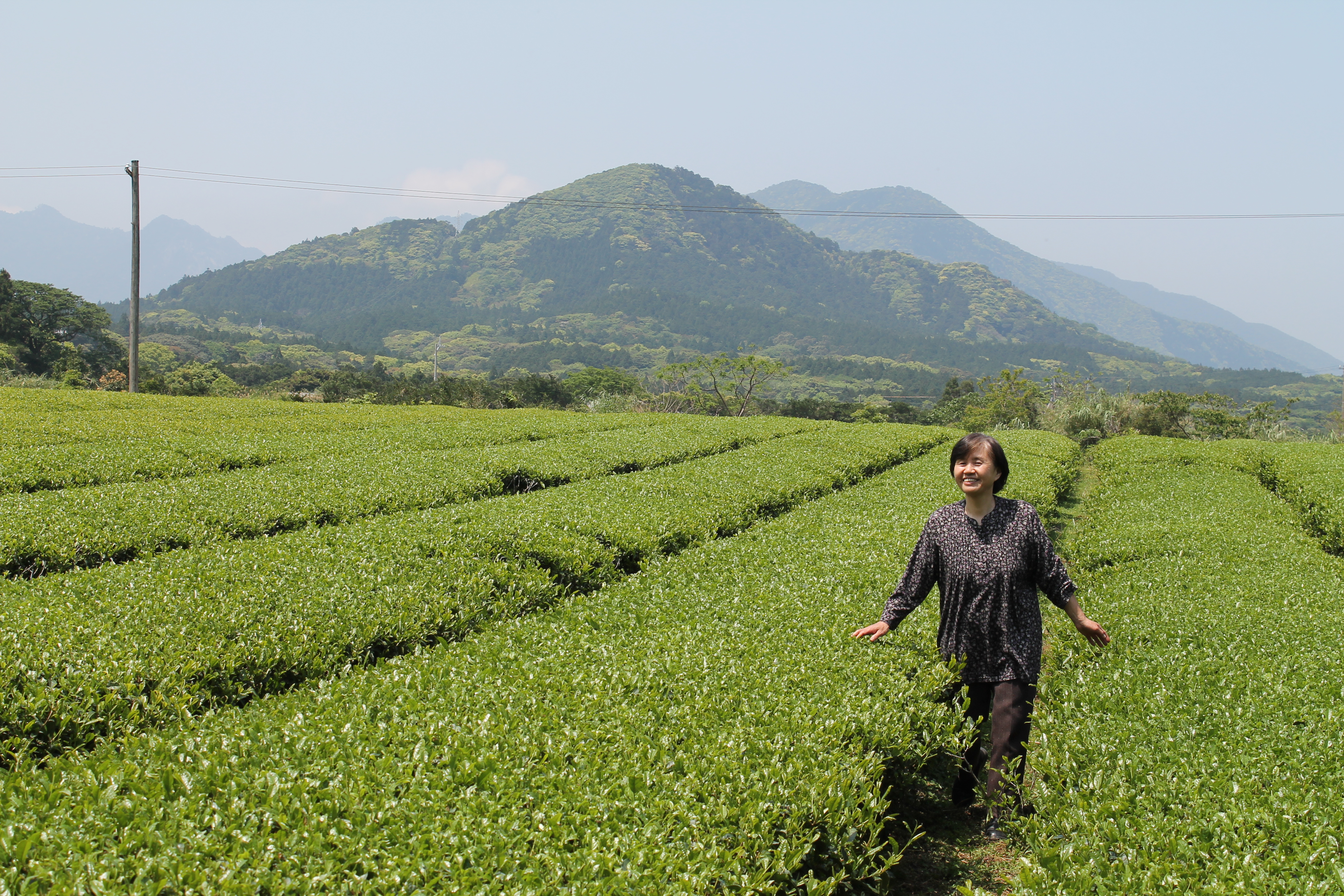
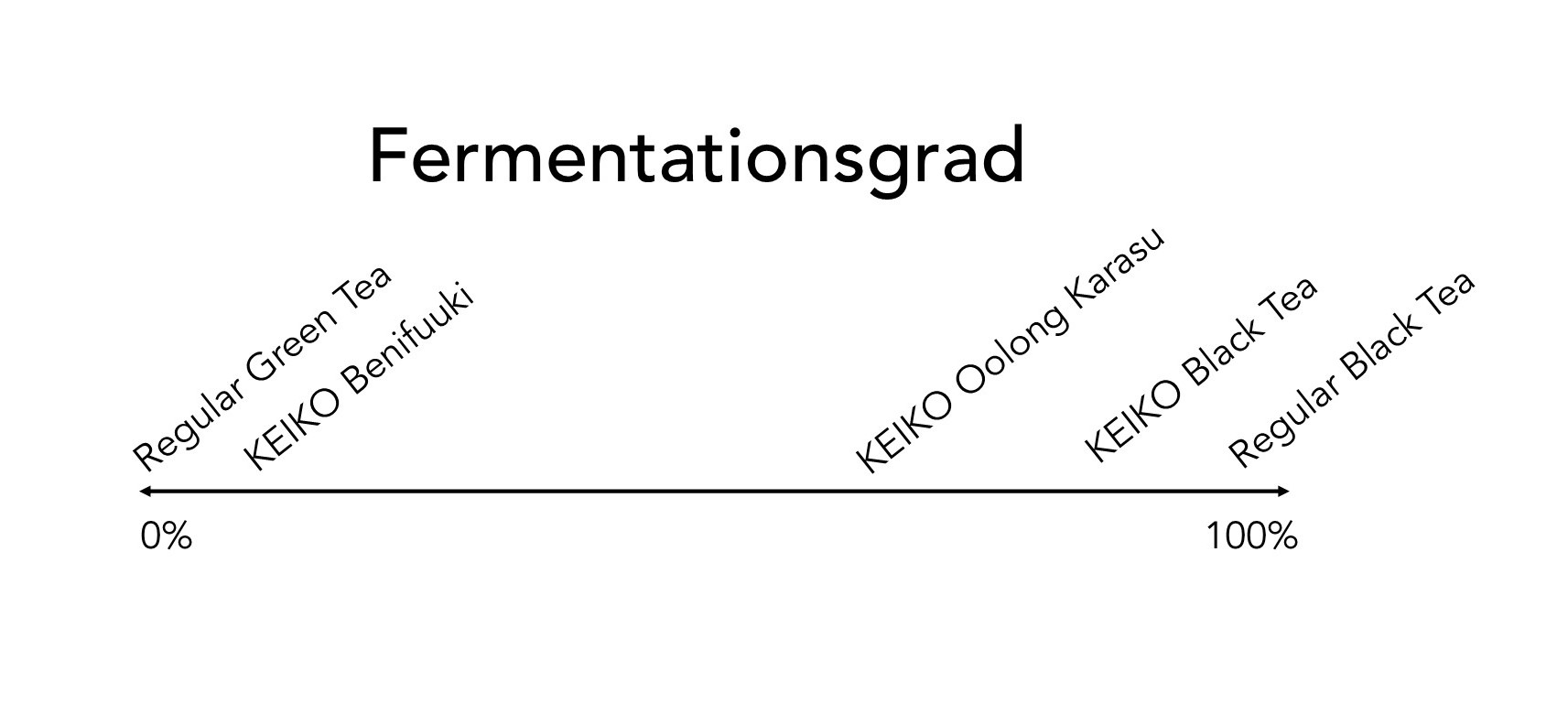
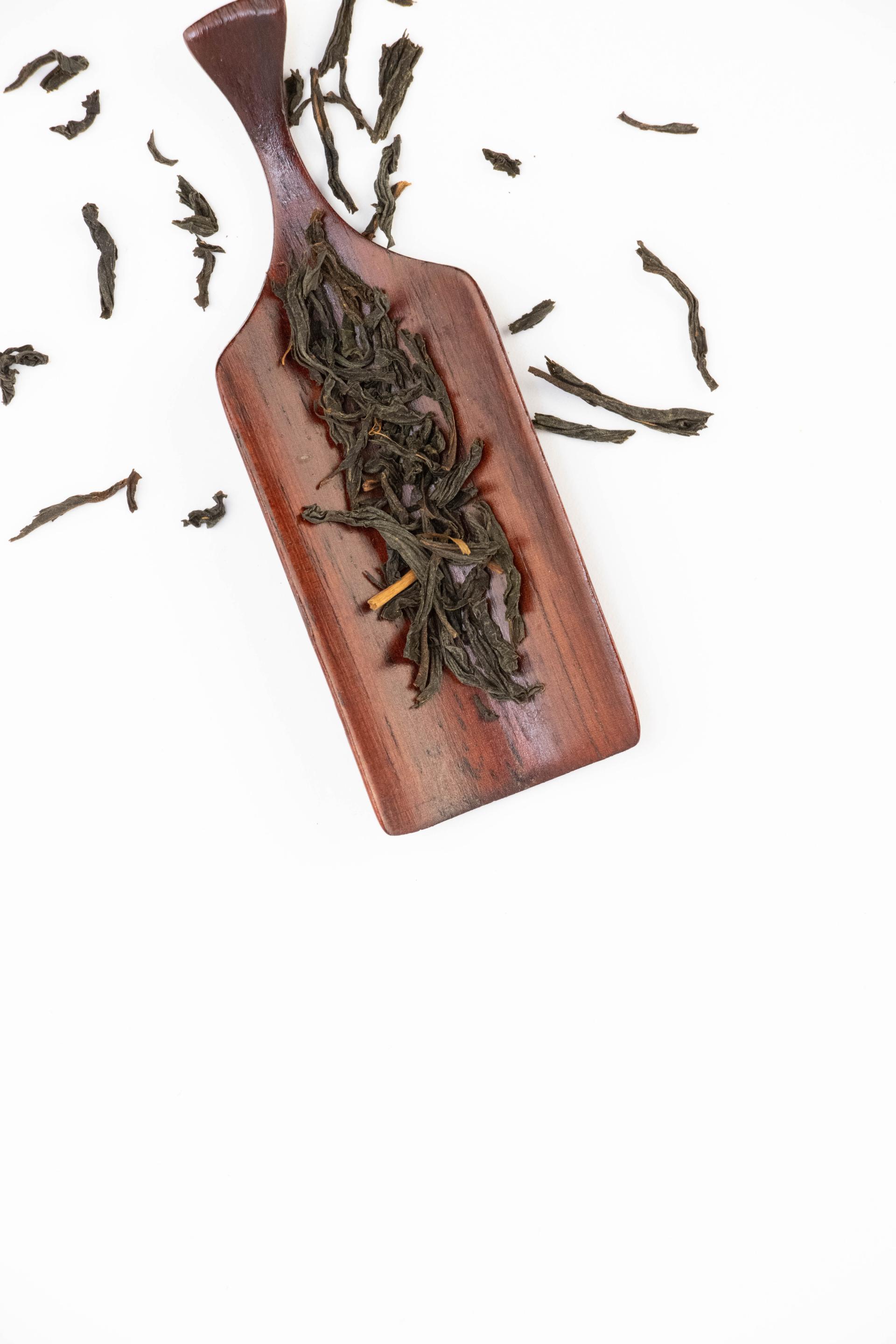
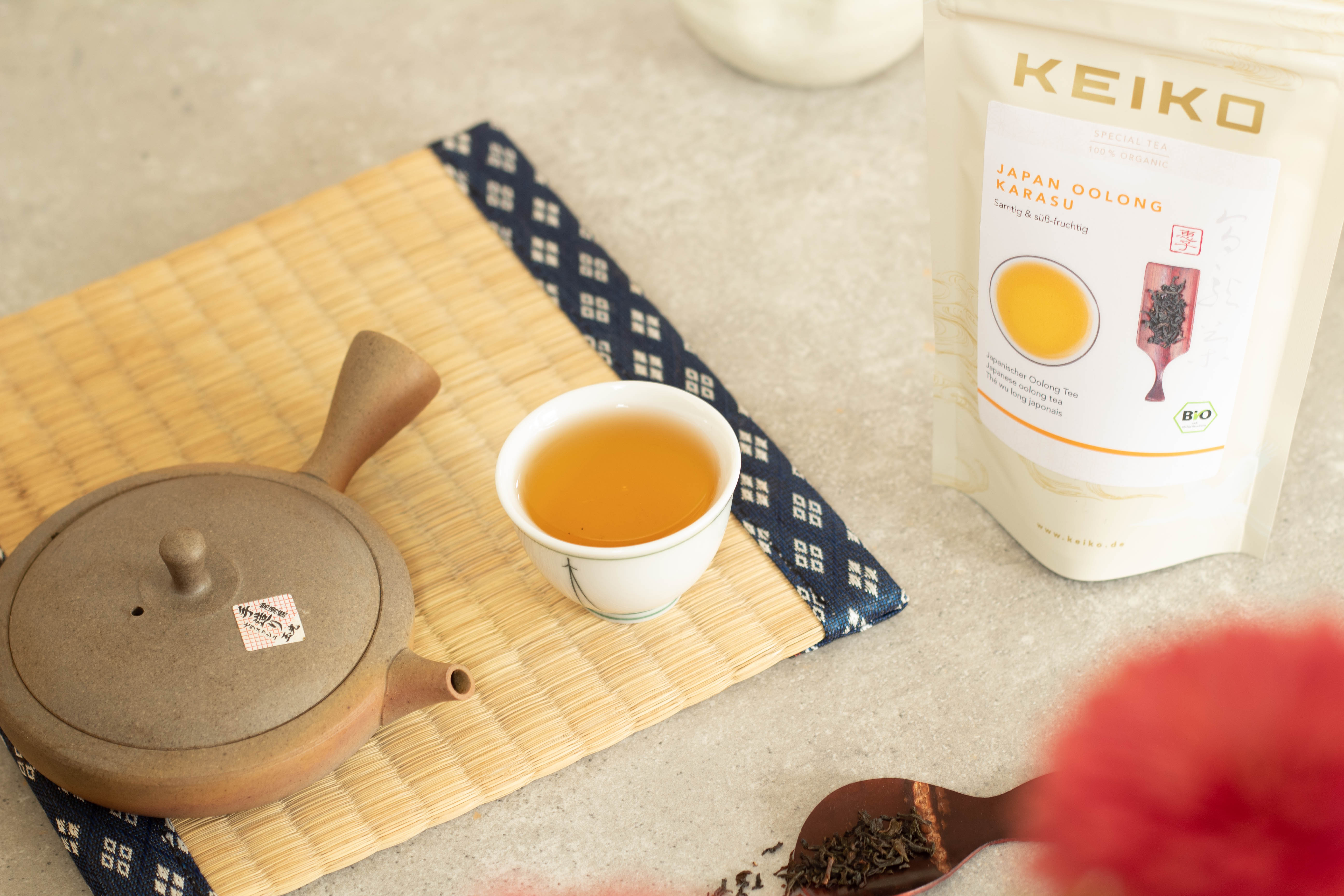
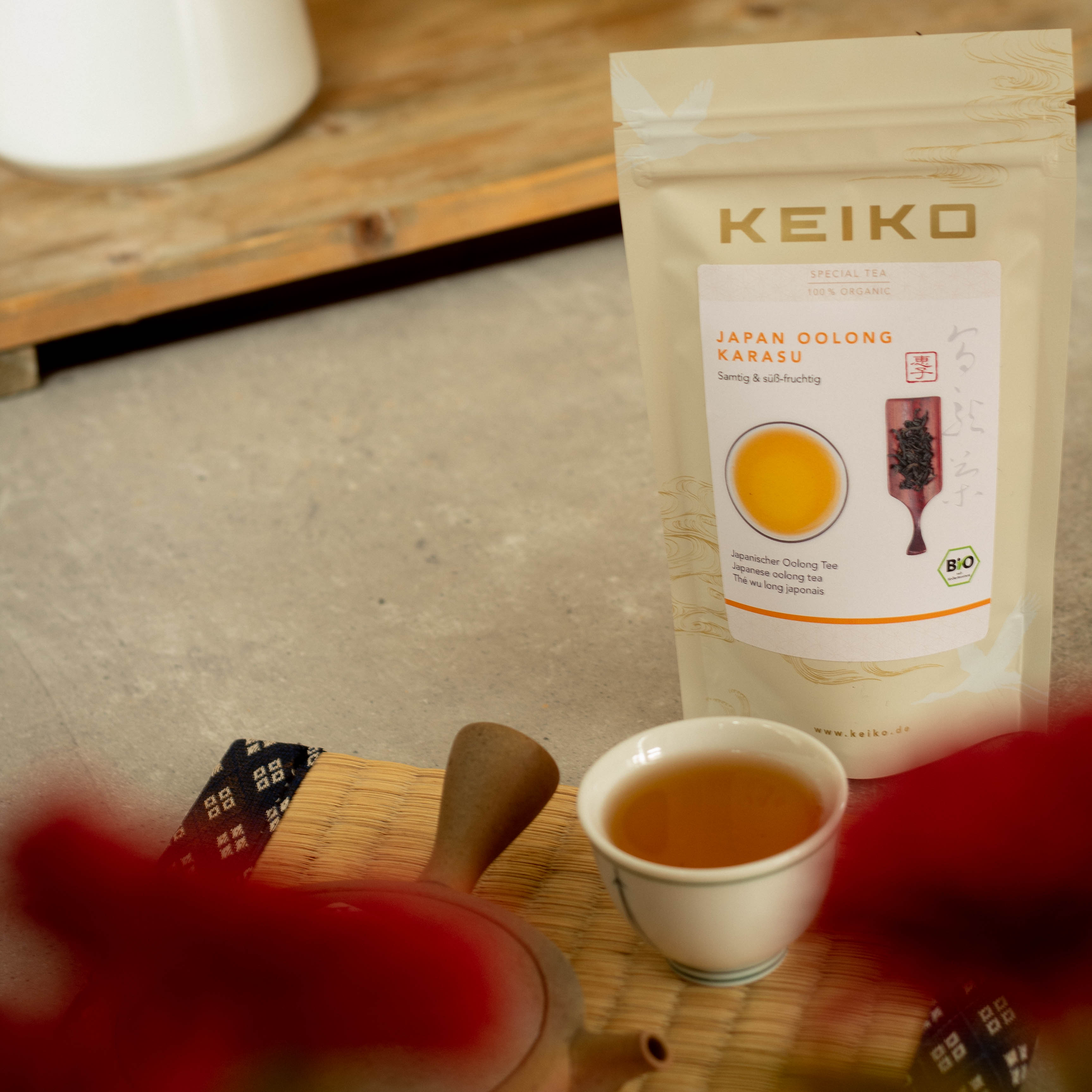





















Dosierung
![]() 1 TL (gestr.-geh.)
1 TL (gestr.-geh.)
Temperature
![]() 80-90°
80-90°
Brewing time
![]() 30-60 sek
30-60 sek
Cold infusions

The KEIKO Special Tea segment represents our "non-green" teas. Rarities that are difficult to find but have convinced that they deserve their spot on tea shelves everywhere.
The KEIKO Japan Oolong Karasu is the newest addition to this range. Oolong tea is "half-fermented", which means it can be placed in between the very lightly fermented KEIKO Benifuuki teas and the Japanese Black Teas Kawanabe and Yakushima.
Oolong originated in China and is translated as the "black dragon". The Japanese signs used for Oolong tea differ slightly and are a combination of the signs for crow, dragon and tea. The sign for crow on its own is read "Karasu" - giving a name to our tea.
Like the Japanese Black Tea Yakushima the KEIKO-Oolong is grown in the organic tea garden of the Fujiwara family on the beautiful island of Yakushima - a lush, subtropical paradise that has been declared UNESCO world natural site. It is made from the first spring harvest of the undshaded tea plants of our signature cultivar Yutaka Midori.
Aroma:
Oolong Karasu has a particularly soft, velvety aroma with a honey-like sweetness, subtle vanilla notes and the delicate fruity taste of ripe peaches.
Preparation:
Oolong is traditionally "washed" with the first infusion by pouring hot water over it and draining it directly. You can omit this step with this oolong and let the first infusion steep at about 90°C for about 1 minute - this allows you to enjoy the full range of flavor of the tea.
The tea has a clear orange-golden color in the infusion and has a very high yieald. It can be re-infused several times with a few seconds of infusion time, the infusion time can then be extended again slightly for the last infusion.
We recommend to store the opened packade in a cool and dry space.
2 of 2 reviews
4.25 out of 5 stars
Login
2 April 2022 14:54
Spitzenklasse
Vielen lieben Dank, für so einen tollen Tee, mir bleibt nicht viel, als mich bei Ihnen für diese tolle Qualität zu bedanken.
20 August 2021 13:17
Angenehm duftend
Ein angenehm duftender, relativ dunkler Oolong mit einem weichen, an schwarzem Tee orientierten Geschmack. Für mich dürfte die Oxidation, für einen helleren und luftigeren Aufguss, ruhig früher unterbrochen werden. Insgesamt ein empfehlenswerter Oolong.
Ähnliche Artikel
Content: 0.05 kg (€255.00* / 1 kg)
Content: 0.05 kg (€259.00* / 1 kg)
Content: 0.05 kg (€255.00* / 1 kg)
Dazu passt


